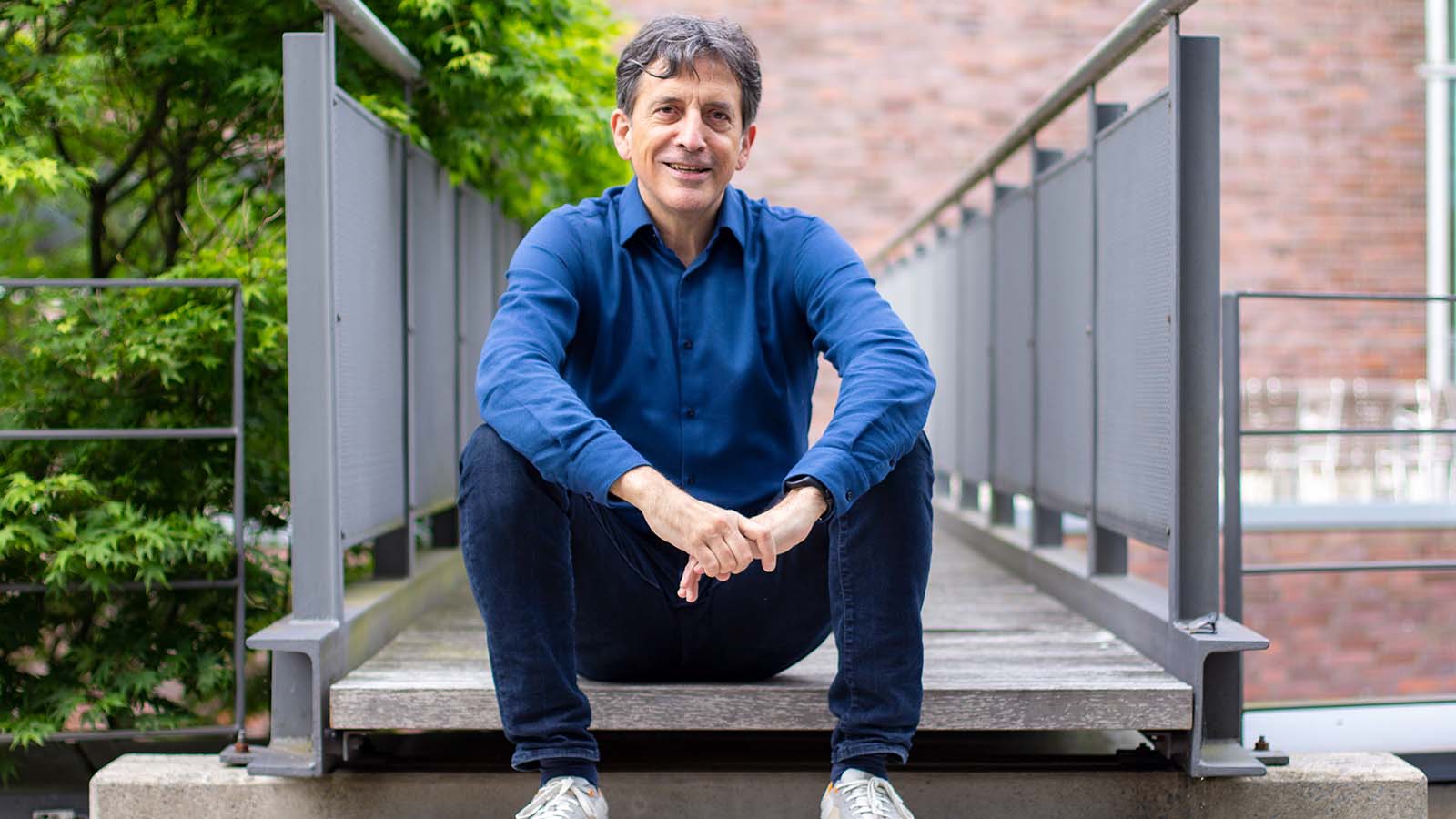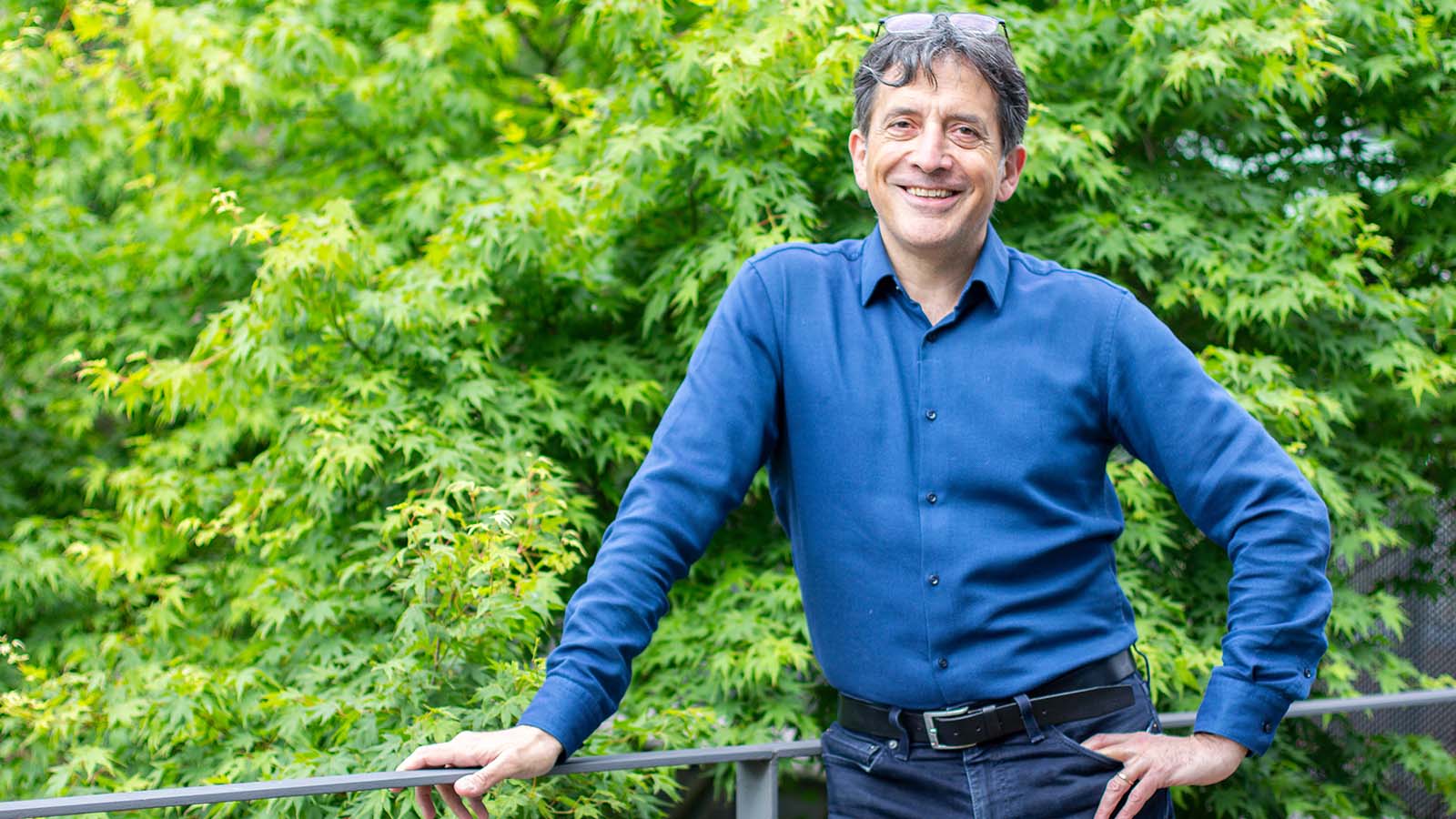
It is people who have made the Ruhr metropolitan region what it is today. And it is people who will shape the Ruhr valley of tomorrow. One leading light in the transformation is Andrea Musacchio.
Professor Andrea Musacchio describes himself as a scientist and the director of a department – namely, the Department of Mechanistic Cell Biology at the Max Planck Institute of Molecular Physiology (MPI) in Dortmund. He is also an honorary professor at the University of Duisburg-Essen and recently received the German scientific community’s most prestigious award, the Gottfried Wilhelm Leibniz Prize 2020 from the German Research Foundation (DFG), in recognition of his structural biology work investigating the distribution of genetic material during cell division. The 58-year-old from Rome maintains that mentoring is all-important: it was, after all, the support of his own mentor, Gianni Cesareni, that opened the door to science for him. Which is why Musacchio also cares a great deal about similarly guiding and helping young people as they enter the scientific community.
Responding to our questionnaire, Andrea Musacchio explained how his professional work is helping shape the transformation in the Ruhr metropolitan area.
My professional title is Director of the Department of Mechanistic Cell Biology.
My work is concerned with the way a mother cell divides to form two daughter cells. This process is of fundamental importance for the propagation of life on Earth, making it possible for organisms to grow and proliferate. Sometimes the process goes wrong and sets in motion a chain of tumor mutations, whose uncontrolled growth poses a danger to health. The understanding we are gaining of the fundamentals of the cell division process gives us hope that we will be able to devise new strategies for countering this tumorous transformation and development.
What I find most exciting about my research is the search for solutions to old scientific puzzles – using new and original approaches where others have tried and failed. I also find it very exciting to work in a research group and among relatively young people, to share responsibilities and leadership, and to take a positive, constructive approach to the development of ideas. It’s a privilege to be a part of this community.
For me, transformation means liberating yourself from old stereotypes so as to be in a position to acquire a new "branding" – though through substance, not words alone. This can be a difficult and protracted process because transformation doesn’t come for free. It has its price, and it meets with resistance. It requires constant attention and self-reflection, learning to understand and explain your own shortcomings. Sometimes it will also be necessary to incorporate an outside perspective. We’re talking here about an investment, one that demands the sharing of long-term objectives and visions.

I’m helping shape the transformation in the Ruhr valley through the exceptional quality of the research carried out by my colleagues every day – and also by training a new generation of highly competent scientists who will in time strengthen the ranks of industry, the universities, the scientific communication field, and the health system. I contribute to this by demonstrating through my work that here in Dortmund, we’re capable of remarkable achievements, even by international standards. I want to play my part in putting the Ruhr valley on other people’s radar.
Without my Institute’s research, we would lose one of our main pillars within the international community that we consider to be our reference point. A community that inspires us, one that can help us make the jump to the transformation that the region needs. We want to be seen as representatives of this transformation.
For me, my profession is a blessing. I might sometimes be overstretched, and get the feeling that the pressure is going beyond what makes my work enjoyable, but in general, I feel incredibly lucky to be a scientist. There are other ways to get that feeling of fulfillment in your life, but for me, science is the strongest and most fulfilling of them all.
To me, collaborating with other scientific institutes in the Ruhr valley means growing stronger together. The Ruhr valley has to learn to go beyond each city’s borders, to build on our cooperation and our strength, and to together to become an internationally oriented community. I would like to see us perceived from outside as what we aim to become: the Ruhr metropolitan area. The more contacts, the better.
For me, the Ruhr valley is a new home that has generously opened its doors to me and my family, and for this I am very grateful. I’m also extremely grateful to my wife Roberta for throwing herself so wholeheartedly into making this move, and the subsequent integration, a success for our family.
Header: MPI für molekulare Physiologie